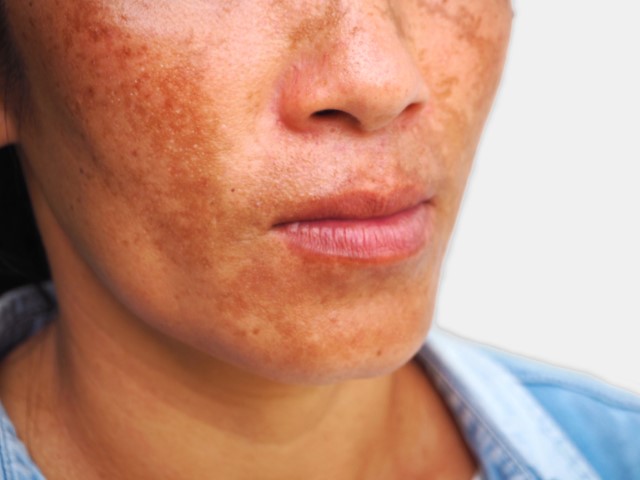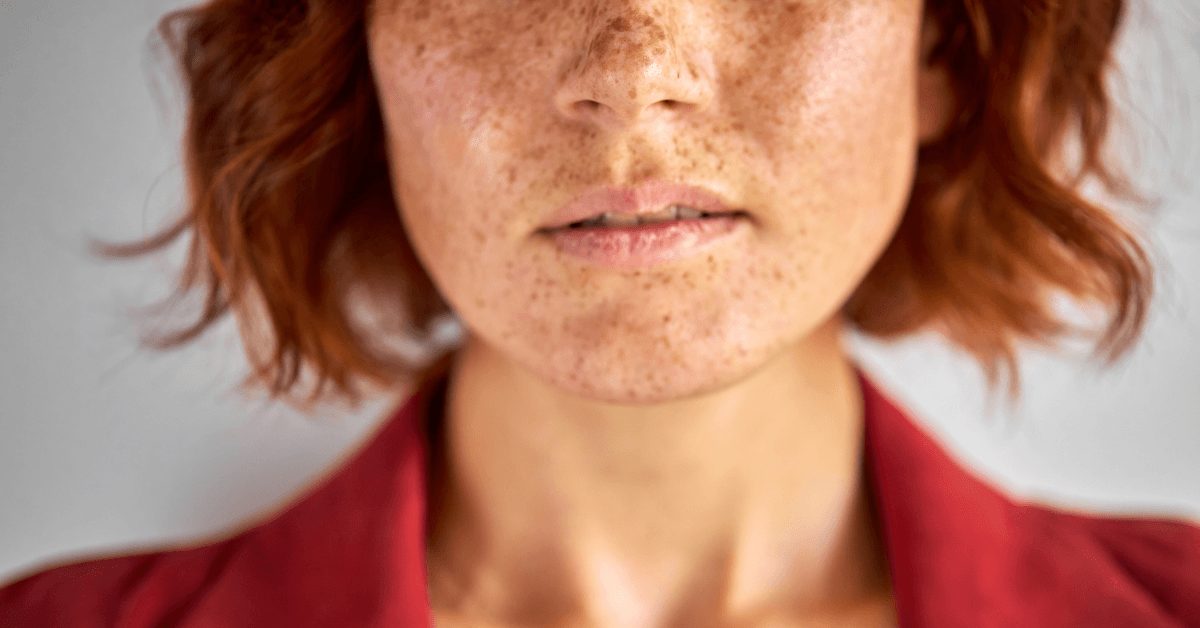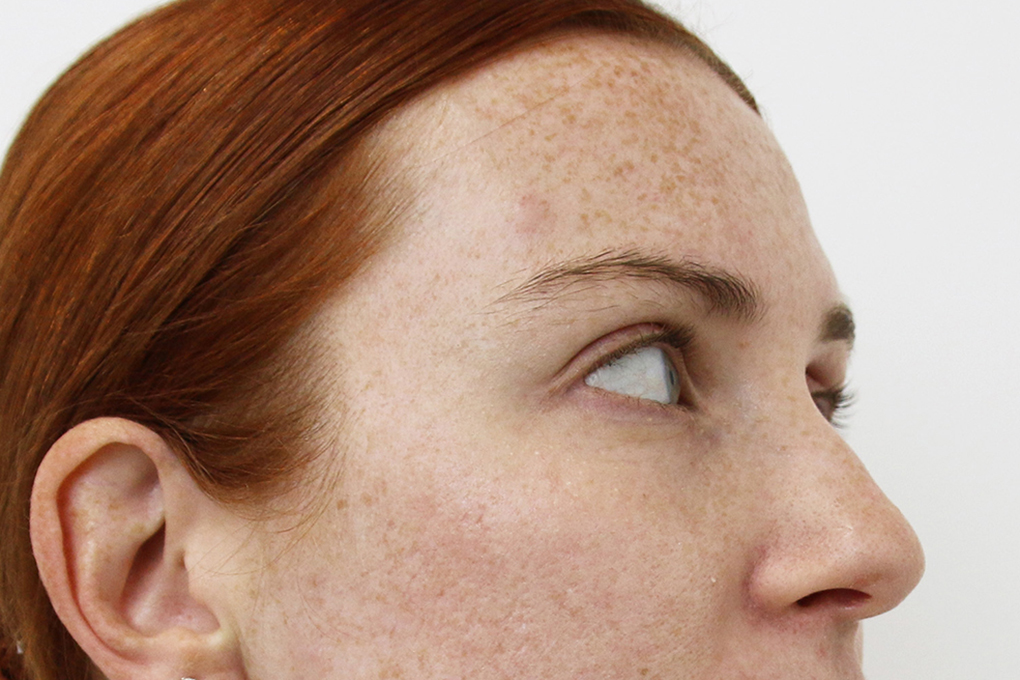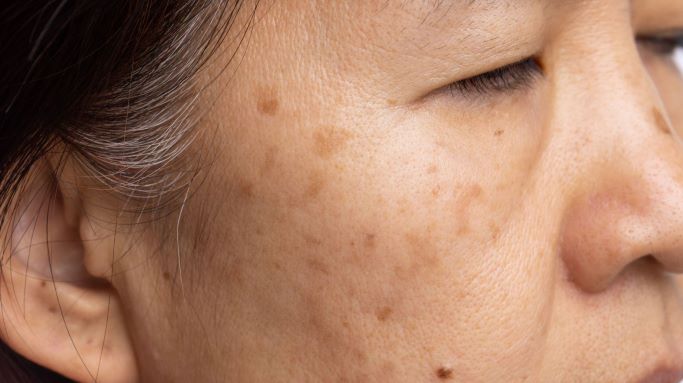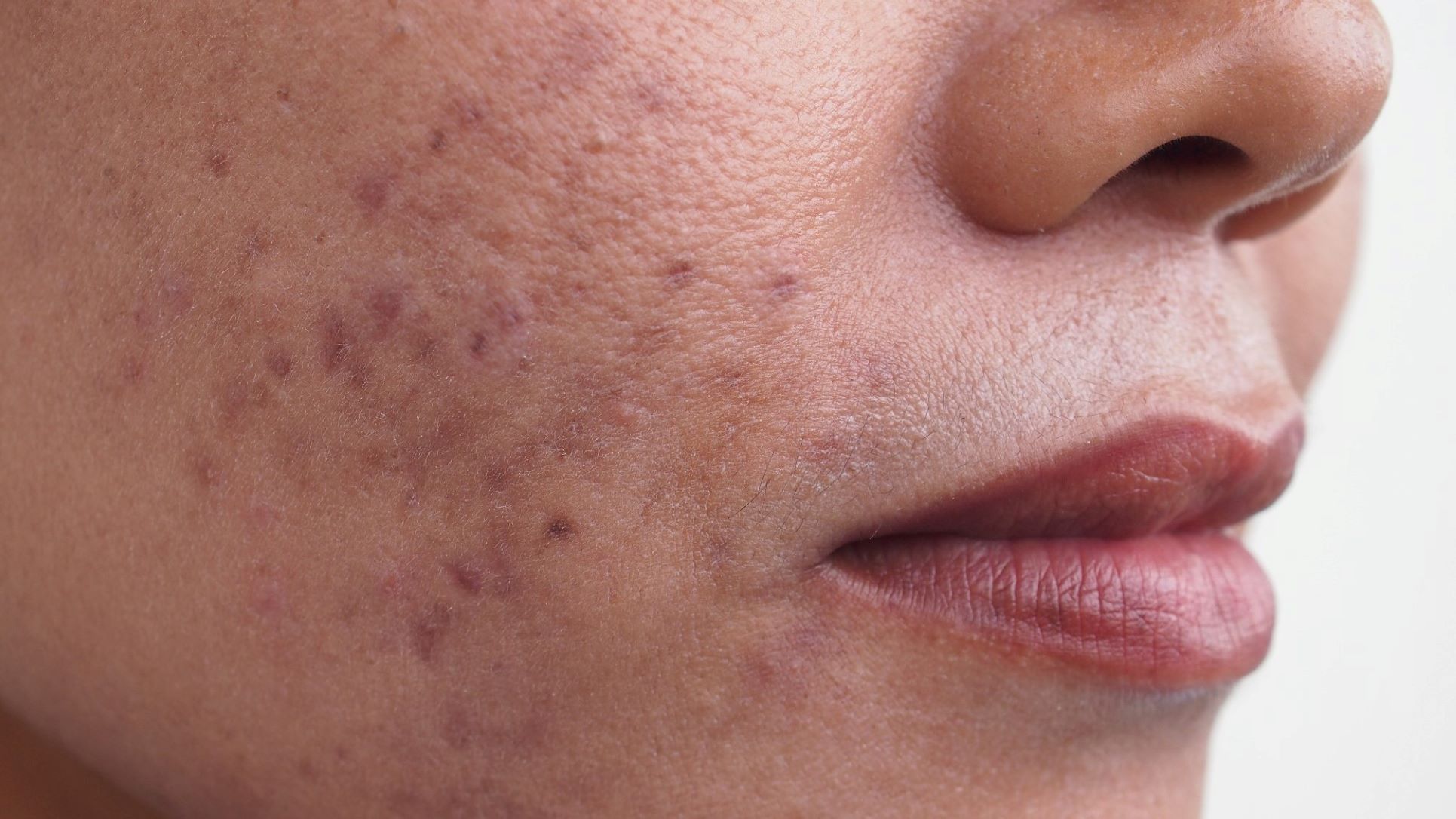Common Skin Concern: Pigmentation
Skin Concern: Pigmentation
Pigmentation refers to the colour in our skin. Our skin colour is determined by the number of melanocytes (pigment producing cells) in our skin. Melanocytes produce melanin (pigment) and when this production is overactive or abnormal this can cause areas of hyper or hypo pigmentation.
Hyperpigmentation is the result of excess melanin production and deposition, causing areas that are darker than the rest of the skin. Hypopigmentation is the loss of skin pigmentation or areas that are lighter than the surrounding skin.
What causes hyperpigmentation?
Hyperpigmentation is the result of an excess of melanin production. It has a variety of causes and establishing the cause of your pigment is the only way to effectively treat it. Common causes of hyperpigmentation include:
- Ageing
- Trauma
- UV radiation exposure
- Medications & medical conditions
- Hormones
- Genetic predisposition
Types of Pigmentation
Freckles
Freckles are small spots of concentrated melanin and can appear in a variety of colours such as brown, tan, red, black or even yellow. Freckles are formed when our skin is exposed to UVB radiation from the sun, activating melanocytes within our skin and increasing melanin production.
Freckles can occur anywhere on the body but are commonly seen on the face, arms, neck, back and chest. In most cases, freckles are harmless and generally fade with reduced sun exposure.
Age Spots
Age spots (or solar lentigo) are more distinct areas of pigmentation which are darker and defined. They are scattered in distribution compared to freckles and tend to arise years later in life – hence the name age spots. Age spots are caused by repeated sun exposure that leads to an over production of melanin and abnormal pigment retention.
Lentigines, also known as liver spots, typically appear on the back of the hands and on the face. They are flat light brown areas that don’t itch or scale.
Melasma
Melasma is a skin condition presenting as symmetric, dark, irregular shading over the cheeks, nose, upper lip, chin and forehead. Melasma is common in women, especially those who are pregnant or with a hormonal imbalance. It can affect all skin types but is more common in darker Fitzpatrick skin types. Melasma is caused when the melanocyte cells are stimulated by oestrogen and progesterone which encourages the skin to produce excessive melanin.
Post-Inflammatory Hyperpigmentation
Post-Inflammatory Hyperpigmentation (PIH) is a type of hyper pigment that occurs following inflammation or an injury to the skin. PIH is common after acne, trauma and inflammatory conditions. Severe inflammation or trauma can disrupt the bottom layer of the epidermis causing the melanocytes to produce melanin that can leak down into and become trapped in the deeper layers of your skin. This results in pigmentation that is deeper and more resistant to treatment.
How to treat Pigmentation
At Australian Skin Clinics, we offer a variety of treatments that can help you tackle pigmentation. Whether your excessive pigment is caused by external factors like sun exposure or internal factors like ageing and hormones, we have a range of treatments and skincare products that may help.
If you’re unsure which treatment is best suited to you, book in for a complimentary skin consultation and we can tailor a treatment plan to you and your skin goals.
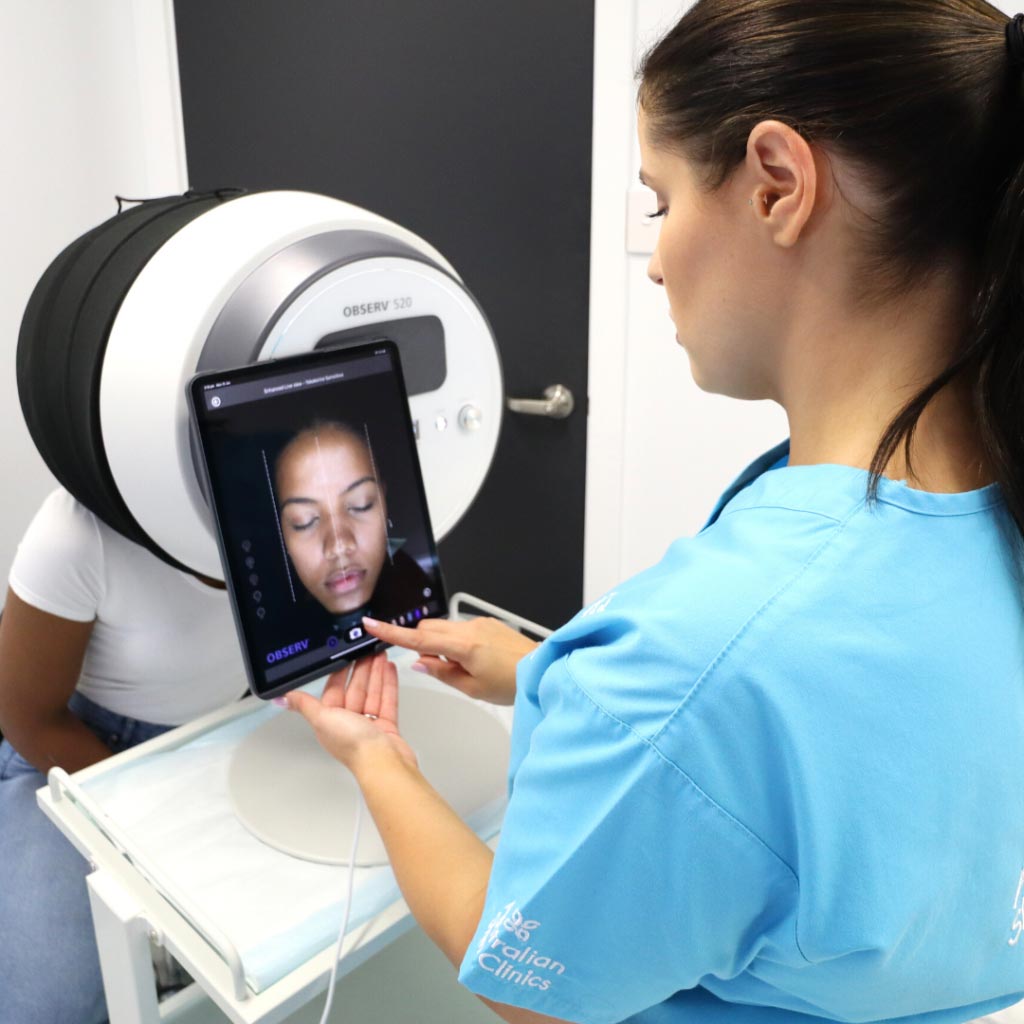
Observ Skin Analysis
Using the advanced Observ Skin Analysis technology, we can get to know your skin on a deeper level, identify your underlying concerns and let’s create a treatment and skincare plan for your best skin yet!
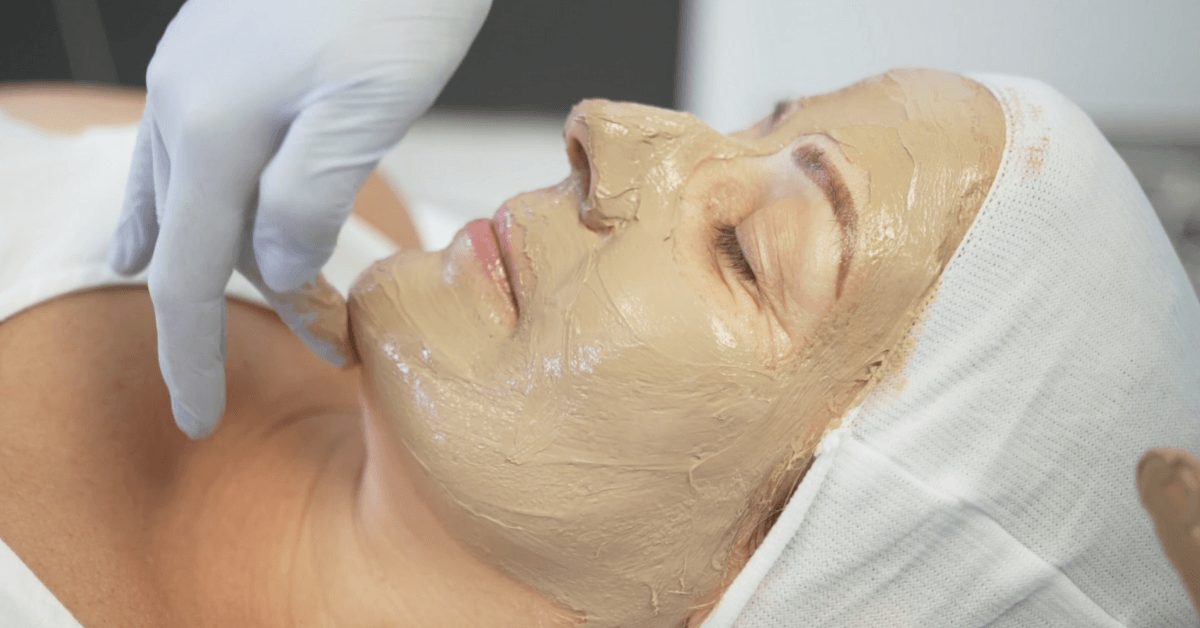
cosmelan®
As the world’s leading professional depigmentation method, cosmelan® effectively reduces the dark spots caused by melanin, hyperpigmentation and ageing.
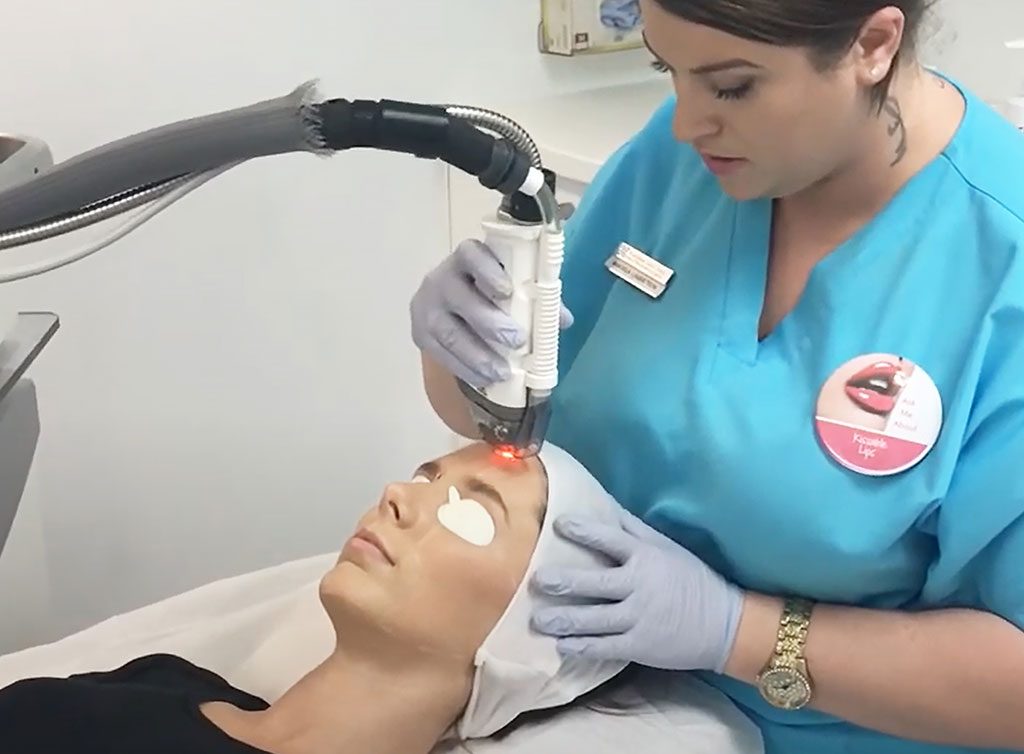
Fraxel Laser
Fraxel Laser resurfaces the skin to reduce wrinkles, acne, scarring, pigmentation and improve skin quality and texture on the face and body.
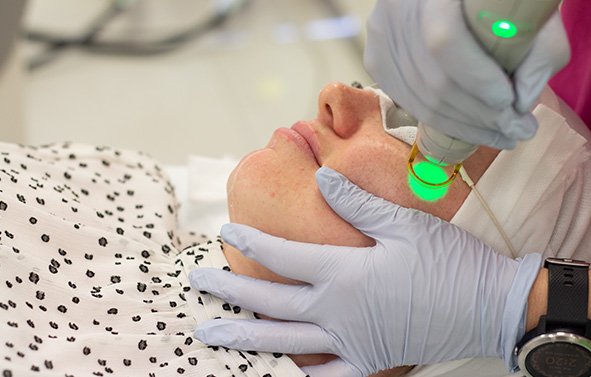
Laser for Pigment
Using laser technology, we can target unwanted spots and fragment the pigment without damaging the surrounding skin tissue.
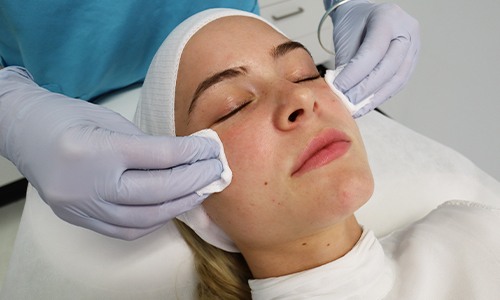
MediPeels
Our range of MediPeels target fine lines, wrinkles, sun damage, pigmentation, pore size, oil production, redness, congestion and acne. MediPeels are an effective, non-invasive treatment that can help you on your way to smoother, healthier and rejuvenated skin!
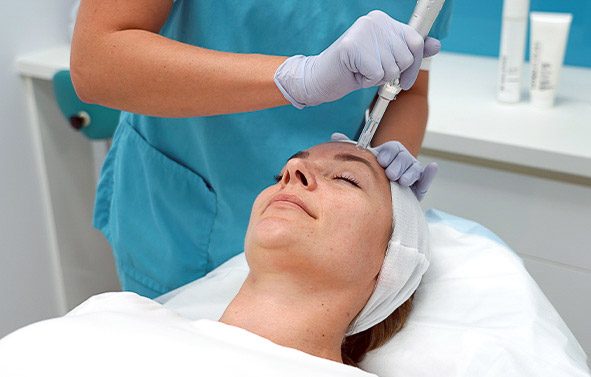
MesoInfus™ Needling
MesoInfus™ Needling combines our advanced microneedling treatment with specially formulated MesoInfus™ Serums designed to target specific concerns.
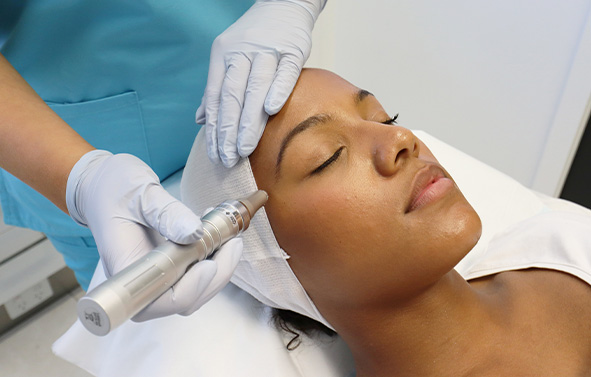
Microneedling
Microneedling is your go-to treatment for boosting collagen and elastin growth. This powerhouse treatment can help you tackle scarring, stretchmarks, acne, black heads, open pores, fine lines, hyperpigmentation and more.
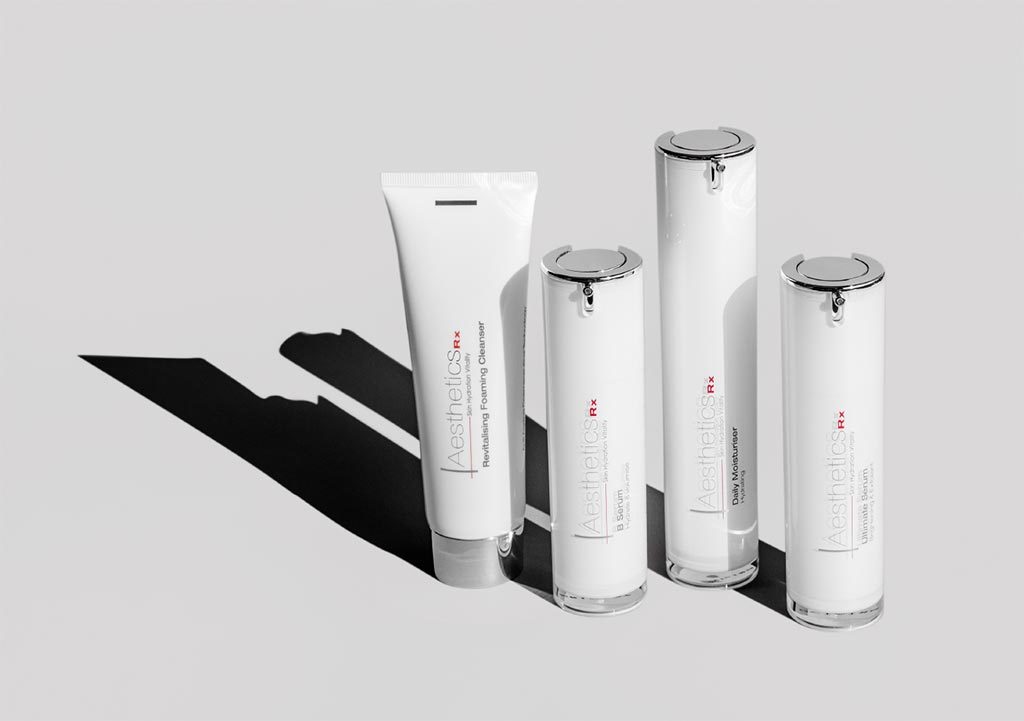
Skincare
At Australian Skin Cinics we offer three cosmeceutical grade skincare ranges in-clinic and can help to tailor a home skincare plan that suits your skin and budget!






